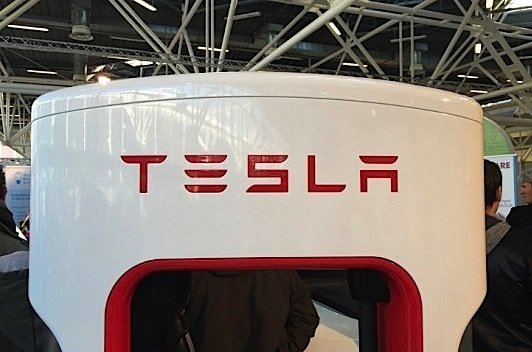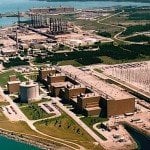Tesla Motors founder Elon Musk seems to relish his position as one of the world’s most disruptive entrepreneurs. First he challenged the global auto industry with his all-electric Tesla cars. Now he is going after the electrical utility companies. Musk announced that a super battery capable of powering a home will soon be ready for consumers to buy. The design is already done, he said. The combination of rooftop solar panels and large-scale battery storage could revolutionize the global utility business.
Musk gave few details about his battery, but he did say that his company has been working on the battery concept for a long time, hinting that it would look something like the battery that powers the Tesla Model S car.
The power distribution industry, meanwhile, is already bracing for something like this. The Edison Electric Group, an association that represents investors in electric utility companies, released a report in 2013 warning of the emerging disruptive technologies that may compete with utility-provided services. These disruptive technologies include solar photovoltaics, battery storage, fuel cells, geothermal energy systems, wind, micro turbines, and electric vehicle enhanced storage. That last item refers to the fact that the battery in the Nissan Leaf can be removed from the car and used to power a home for about a week in an emergency.
The threats posed to the electric utility industry from disruptive forces, particularly distributed resources, have serious long-term implications for the traditional electric utility business model and investor opportunities. While the potential for significant immediate business impact is currently low (due to low DER participation to date), the industry and its stakeholders must begin to seriously address these challenges in order to mitigate the potential impact of disruptive forces, given the prospects for significant DER participation in the future.
The Edison Electric Group
From the Edison Electric Group’s perspective, the oncoming disruptive technologies, though it does not specifically mention a battery capable of taking entire households off grid for at least part of the time, are a threat to its profits. “When customers have the opportunity to reduce their use of a product or find another provider of such service, utility earnings growth is threatened. As this threat to growth becomes more evident, investors will become less attracted to investments in the utility sector.” The pace of the coming disruption cannot be predicted, but the fact that it is underway is undeniable, with “a large universe of companies” pursuing it. Investor-owned utilities had better recognize and address the challenges, and soon, “so that uneconomic disruption” does not go any farther than it already has.
Musk says they will release the household battery, which reportedly will recharge itself via solar panels, within a few months. It will likely be something like the Model S pack, something “flat, five inches off the wall, with a beautiful cover, an integrated bi-directional inverter, and plug and play.” It is not known how much the unit would cost to purchase, nor how much its battery storage costs would be per kilowatt hour.
While a battery storage solution like Musk’s can be seen as competition for the utility industry, he notes that there is room for cooperation. The utility companies are themselves searching for better energy storage systems to help stabilize the grid and allow for the inevitable increase in solar and wind-generated electricity. Musk’s battery could be that solution.


































